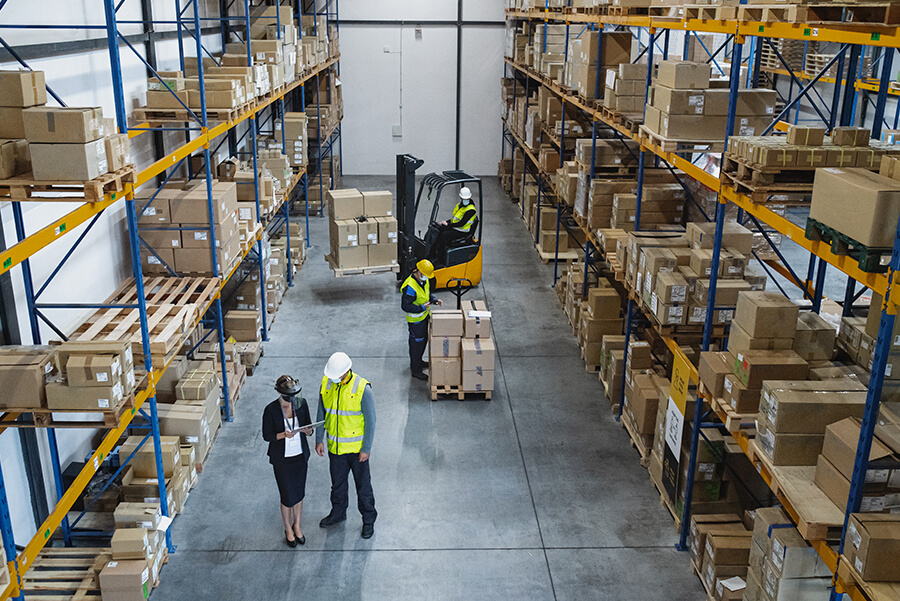
The World Economic Forum (WEF) report supports visibility, digitalization, and secure data sharing to achieve resilience in critical times.
The coronavirus pandemic has had various logistical impacts. To ensure supplies to the population, most operations did not cease their activities but faced daily challenges in fulfilling their mission. Given this scenario, what has been most discussed is the need for more resilient supply chains.
The idea of “resilience” in this context refers to the ability to mitigate risks and cushion the impacts of unpredictable events, as happened with the Covid-19 pandemic. Fundamentally, it is about a company’s ability to maintain operational continuity at the desired level, even with external and internal adversities.
With the current crisis, most companies were caught off guard regarding this ability to handle disruptions. Many of them faced additional difficulties for not having built a resilient chain. But, after all, how to achieve this goal?
In a report presented by the World Economic Forum (WEF) on more resilient supply chains, three main ideas are presented:
☑ Supply chain visibility is crucial to understanding the impact of disruption.
☑ Digitalizing records will make operations more resistant to future shocks.
☑ Blockchain will help ensure data privacy for suppliers.
For the entity, the coronavirus crisis has changed the supply chain. And now it’s important to find ways to adapt. Therefore, having an end-to-end view of the entire chain is the first step. The WEF cites the example of companies selling finished products, which “generally know the production and shipping schedules for their Tier 1 suppliers but have little to no knowledge of the suppliers further downstream,” meaning the agency itself acknowledges that this visibility is imperfect as it is not complete.
The WEF argues that achieving full chain visibility is essential to optimize efficiency and agility during normal production. And when disruptions occur, this visibility becomes even more crucial to understand the impact of the disruption on the rest of the chain, so others in the ecosystem can plan and act, such as developing routes to alternative suppliers.
As Covid-19 has led to lockdowns, many chain suppliers are temporarily halting production. There is also a great difficulty from carriers, who can no longer transport goods uniformly, especially across borders.
An example presented by the WEF is that of Fiat Chrysler Automobiles, which announced in mid-February that it had temporarily suspended production at a car factory in Serbia because it could not obtain parts from China. Hyundai made a similar announcement for factories in Korea. The organization also cites disruptions caused by the decrease in international flights, as many carried a significant amount of commercial goods.
The WEF further emphasizes the issue of China’s central role in global supply chains, showing in the following image how part of all intermediate product imports comes from Chinese territory:
Resilient Supply Chains
The agency highlights that this is not a new issue. The biggest problem is the lack of information provided by suppliers. That’s why every company needs to achieve full chain visibility. To this end, the entity recommends:
Abandon Paper and Invest in Digitalization
Trade relies on paper processes: or “Knowledge of Shipping” (“Bill of Landing”) – a detailed list of a ship’s cargo; handwritten notices; paper copies of each logistics carrier’s packing lists, etc. In some cases, such as in the “Shipping Notice,” paper copies are legally required. Most of the time, companies still need to digitize their processes and have not yet done so because they believe the cost of such an operation does not bring enough efficiency or security to justify the endeavor.
However, Covid-19 protection measures have made it clear that operations dependent on physical resources like paper can be seriously disrupted when physical presence is not possible. How to protect signatures and paper prints when working from home, for example? Moreover, chains that depend on the information contained in these paper documents quickly lose access to this visibility and cannot react to crisis-induced changes.
For WEF, digitalization is therefore not just a matter of cost, but above all of visibility and supply chain risk management. To limit the impact of failure points in the chain, it is important to make data available through digital means. According to the entity, in the current coronavirus pandemic, governments and companies with a strong digital infrastructure and regulations that allow such electronic signature and transaction laws are managing supply chain disruptions much better than those still relying on manual and paper processes.
Ensure Supplier Data Confidentiality
For WEF, the reason why upstream suppliers do not disclose information to end customers, even if it is easy for them, is that they fear losing a commercial advantage if their customers learn even more about their operations, pricing, and sourcing. Suppliers must be able to control exactly who receives what data from them and independently verify these controls.
Most digital communications in the supply chain occur through Electronic Data Interchange (EDI) and Excel spreadsheets. When transmitted between two parties, data privacy is easily manageable and not an issue. However, when data in these communications needs to be distributed to multiple parties, traditional and centralized systems cannot guarantee independent and verifiable access controls to each individual party. So, according to the WEF, a decentralized system is the best way to give suppliers the privacy they need while giving buyers the visibility they seek.
If created correctly, a blockchain can be the solution. Suppliers can directly control their data-sharing permissions, while data can be securely distributed to those part of the network without requiring peer-to-peer integration as in centralized systems. This would solve a critical technological problem to convince suppliers to participate in supply chain visibility initiatives.
Start Now
Finally, a recommendation from the WEF is “do not believe that chain disruptions will never happen again.” The pandemic we are experiencing today, with impacts on the supply chain and demand, is clear evidence that any level of disruption in the supply chain can occur at any time. Therefore, it is necessary to be prepared.
Therefore, the agency recommends that the sooner the recommendations for visibility and secure data sharing are implemented, the more resilient the supply chains will be to face a future shock. And it concludes by emphasizing the importance of trying to support suppliers in financial difficulty to make the value chain more efficient in terms of capital.














